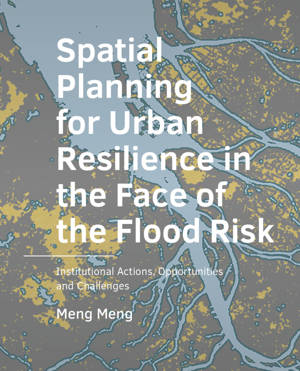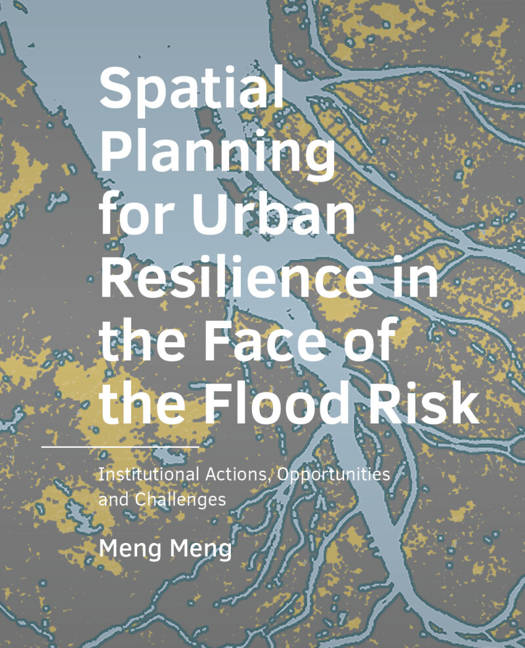
- Retrait gratuit dans votre magasin Club
- 7.000.000 titres dans notre catalogue
- Payer en toute sécurité
- Toujours un magasin près de chez vous
- Retrait gratuit dans votre magasin Club
- 7.000.000 titres dans notre catalogue
- Payer en toute sécurité
- Toujours un magasin près de chez vous
Spatial Planning for Urban Resilience in the Face of the Flood Risk
Institutional Actions, Opportunities and Challenges
Meng Meng
29,95 €
+ 59 points
Description
The research was inspired by the increasing impact of extreme weather events and changing climate patterns on flood-prone regions and cities, and the consequent human and economic costs. Despite global efforts for flood resilience and climate adaptation involving climate analysts, economists, social scientists, politicians, hydrological engineers, spatial planners, and policymakers, it is only partially clear how best to construct resilience measures and implement concrete initiatives. The complexity of institutions is a key factor that is often neglected, and which needs further investigation. The thesis examines the institutional arrangements that determine the role of spatial planning in managing flood risk, through an in-depth case study of Guangzhou, one of the most vulnerable cities in China and globally.
The thesis employs theories of historical institutionalism, planning procedure and planning tools, policy framing and collaborative governance, to explore the mechanisms and factors that influence the creative planning and design process. Content analysis, GIS-based mapping, stakeholder analysis and TOWS analysis are used to investigate data from official policy documents, grey literature, geo-information data and interview scripts. The findings indicate that institutional arrangements, such as long-established planning traditions, formal planning procedures and tools, policy framing patterns and contextual organisational factors, determine spatial planning’s role in managing flood risk. They do this through (1) the extent of the changeability of an established planning system towards expanded flood resilience measures; (2) the performance of cross-level communication and boundary-spanning work between planning and water management; (3) the legal framework that planners and hydrological engineers follow; and (4) the capacities of planning and water management institutions to work on flood issues. This research shows how to apply knowledge from policy science, political science, institutional science and administration, to analyse the nature of the planning process in tackling the urgent challenge of flood risk and climate change.
The thesis employs theories of historical institutionalism, planning procedure and planning tools, policy framing and collaborative governance, to explore the mechanisms and factors that influence the creative planning and design process. Content analysis, GIS-based mapping, stakeholder analysis and TOWS analysis are used to investigate data from official policy documents, grey literature, geo-information data and interview scripts. The findings indicate that institutional arrangements, such as long-established planning traditions, formal planning procedures and tools, policy framing patterns and contextual organisational factors, determine spatial planning’s role in managing flood risk. They do this through (1) the extent of the changeability of an established planning system towards expanded flood resilience measures; (2) the performance of cross-level communication and boundary-spanning work between planning and water management; (3) the legal framework that planners and hydrological engineers follow; and (4) the capacities of planning and water management institutions to work on flood issues. This research shows how to apply knowledge from policy science, political science, institutional science and administration, to analyse the nature of the planning process in tackling the urgent challenge of flood risk and climate change.
Spécifications
Parties prenantes
- Auteur(s) :
- Editeur:
Contenu
- Nombre de pages :
- 296
- Langue:
- Anglais
- Collection :
Caractéristiques
- EAN:
- 9789463663861
- Date de parution :
- 08-03-21
- Format:
- Livre broché
- Dimensions :
- 191 mm x 235 mm
- Poids :
- 680 g







